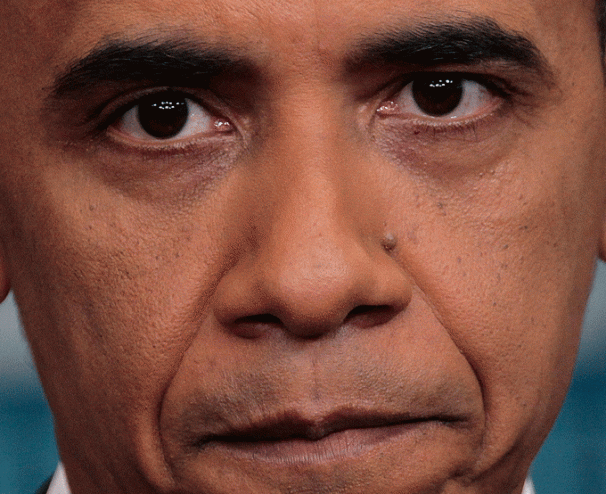George Orwell’s great dystopian novel, 1984, was published in 1949. The U.K. and the rest of Europe were recovering from years of devastating war. And in eastern Europe, the genocidal dictatorship of the Nazis was being replaced by the rival totalitarian rule of Stalinist USSR.
1984 has become a template of subsequent visions of modern dystopia and tyranny, and one of its most disturbing features is the total surveillance that the state exercises over its people. Undoubtedly for that reason sales of Orwell’s novel have spiked since Edward Snowden’s leaks about the extent of electronic surveillance being conducted by the National Security Agency. President Barack Obama himself, in defending the surveillance program, alluded to 1984 when he denied that “Big Brother” lurked anywhere in our national policy.
But Orwell’s was not the only compelling dystopic vision from that time period. In 1944, two German revisionist-Marxist (or “Frankfurt School”) philosophers—relocated in southern California—Theodor Adorno and Max Horkheimer, published The Dialectic of Enlightenment. In it, they argued that naked, brutal oppression was no longer necessary for a political-economic system and its ruling class to maintain control over its people. The Nazi and communist way was one way, and there was a western, capitalist, American way to do it, as well.
| We do not live in an Orwellian state, and we are not likely to soon. |
Domination could be primarily ideological. They wrote of a “culture industry” whose vastly entertaining products, consumed by millions, served to pacify, titillate, amaze, and satiate the populace, rendering them acquiescent to an unjust social order and depriving them of the ability to imagine alternatives. The culture industry would be an essential ideological piece of a new, consumer-based capitalism in which political voice was replaced by consumer “choice.”
In this soft totalitarian world, not less than in the hard totalitarianism seen in Nazi Germany and Stalinist Russia, what Marx called humanity’s “species being”—the flourishing (both social and biological) of a person’s full capacities as a human being—was suppressed.
Orwell’s 1984, of course, depicts totalitarianism of the hardest sort. Repression is direct and physical violence stands ready to punish any deviance. Private, interior life and personal desires are forbidden. And the lies on which the regime is based must be repeated continually by all. Torture not only forces this repetition but, more horrifically, forces actual belief in these lies. Surveillance here is undisguised. Televisions in every dwelling not only play nonstop propaganda, but observe and record the inhabitants’ every act and utterance.
So was Orwell prophetic? Or have we arrived at Horkheimer and Adorno’s vision?
It would seem that, in the present American context, the culture industry-consumerism scenario fits more accurately. Our sensational, celebrity-drenched mass media, our loud and silly 24-hour news establishment, and our test-driven school system combine to politically anesthetize. The reigning dogmas insist fundamental change of the socio-economic order is impossible. And yet, the latest iPhone can be had at a reasonable price as part of your two-year service contract.
But this is not the whole story. Even in our passionately oblivious consumer paradise, two principle dissonances persist. First, the center of the consumerist social contract is breaking down: that is, continual prosperity and the ability of all citizens to be effective consumers. The growth of poverty and social inequality since the 1980s, and especially since the financial crisis of 2008, have begun to starve consumer capitalism of its political elixer.
This sense of the endpoint of consumption guides both the Tea Party and the Occupy movements. The second dissonance is that force and violence are still used. We saw during Occupy the reality of the state power when the government’s patience with public protest had expired. We know that during political conventions or international summits, freedom of assembly and political expression are restricted to fenced-in “free speech zones”—a revelation to those who imagined that such a zone encompassed our entire country.
| The goal of the system is to preserve the possibility of a pleasant and permissive life while eliminating political dissent. |
Our neighbors who live and work here without official residence documents know and fear the force of the state. And the hundreds of thousands of people—mostly young African-American men—serving jail terms for nonviolent drug offenses have reason to think of their country as a police state. (And at this moment in Turkey and Brazil—two countries increasingly regarded as members in good standing of the modern, neoliberal, consumer-culture community—mass protests over the uses of public resources have quickly triggered brutal police repression).
The NSA’s anti-terror surveillance programs, as we all know, collect meta-data. Its massive electronic net pulls in everything—phone calls, text messages, emails, web searches—but reads nothing, until its sophisticated and ultra-secret investigative algorithms detect patterns of communications that merit closer scrutiny.
This is not on its face Orwellian. In Orwell’s dystopia, meta-data and actual intelligence are the same. All content is observed. Big Brother does not look for patterns, but examines and judges every word and action of every citizen. There are no constitutional checks whatever, as there were none in Stalinist Russia and Eastern Europe.
The NSA, we are assured, only searches for patterns of contact with or demonstrable interest in known terrorist figures, organizations, media sources, etc. The algorithms are set that way. Bring in the haystack, run the program, and you’ll find a few needles. None of the other pieces of hay will be any the worse. And many of us are reassured—particularly liberal pundits in major media sources. Neither privacy nor the constitution are really at risk—or, a little privacy and Fourth Amendment protection may be sacrificed for the sake of security.
No real harm, no need to blow the whistle. Not Orwellian. If it turns out our digital pursuits include large purchases of fertilizer, contacts with Al Qaeda associates, or even purchases of serious quantities of automatic weapons and ammo, perhaps we should be further monitored.
But the algorithm can be changed.
What if our contacts are with a Palestinian right-to-return group, a slightly off-the-mainstream Zionist organization, a labor union, an anti-war group, or even with a moderate but determined group like Americans for Peace Now? And the workplace is a notorious site of unfreedom; surveillance and job insecurity have made unionization nearly impossible. Is there any doubt that organizers of the Occupy movement were closely watched by law enforcement?
Domestic political surveillance has a long history in the U.S. The NSA may already be looking at political movements in this country—we have no idea if they are. Again, the algorithm can be changed. I’m not even talking about a slippery slope here; it’s more a simple horizontal adjustment, depending on the perceptions and priorities of whoever is the current administration. And it’s still not exactly Orwellian. It does not depend on generalized terror.
| What the NSA surveillance revelations show us is a road toward a boutique totalitarianism. |
The goal of the system is to preserve the possibility of a pleasant and permissive life while eliminating political dissent. Live as you’d like, sleep with whom you’d like but don’t rock the boat. If you challenge the country’s ruling entities, you’ll be identified, you’ll be intimidated, you might be knocked on the head or pepper-sprayed. And finally, if you’re stupid enough to continue, you’ll wind up in jail—a reliable disincentive to most political action.
We do not live in an Orwellian state, and we are not likely to soon. Nor do we quite live in an ideologically seamless “culture industry” world that Adorno and Horkheimer imagined. Our world has a lot of seams.
What the NSA surveillance revelations show us is a road toward a boutique totalitarianism. For most of us, there be no open repression—though severe class inequity, decay of social and physical infrastructure, and destruction of the environment (forms of oppression themselves) will continue. But norms of political acquiescence will be more rigidly enforced. The NSA’s massive informational trawl and incisive algorithms will determine where the force will be directed.
James Berger is Senior Lecturer in American Studies and English at Yale University. He is the author of After the End: Representations of Post-Apocalypse (University of Minnesota Press, 1999). His new book, The Disarticulate: Language, Impairment, and the Narratives of Modernity, will be published in 2013 by New York University Press.





0 Comments